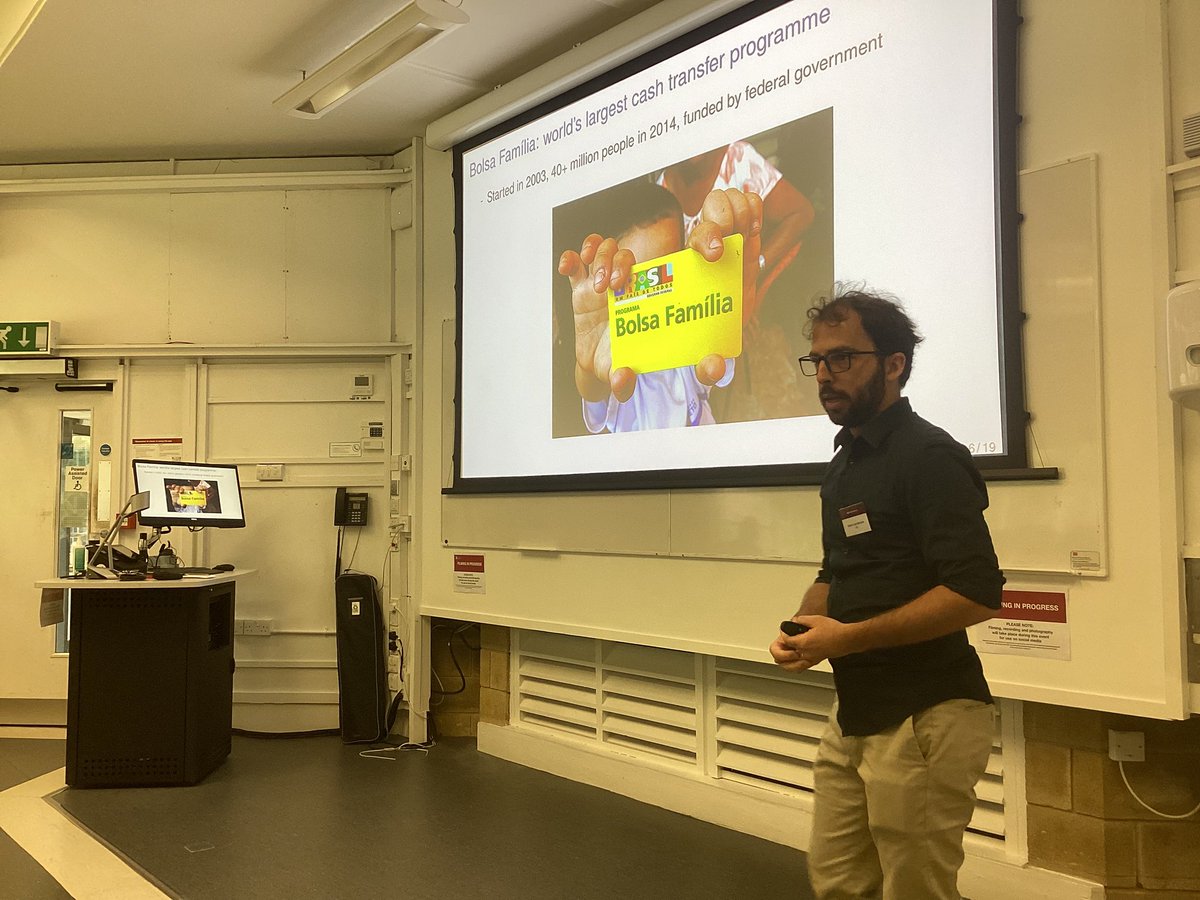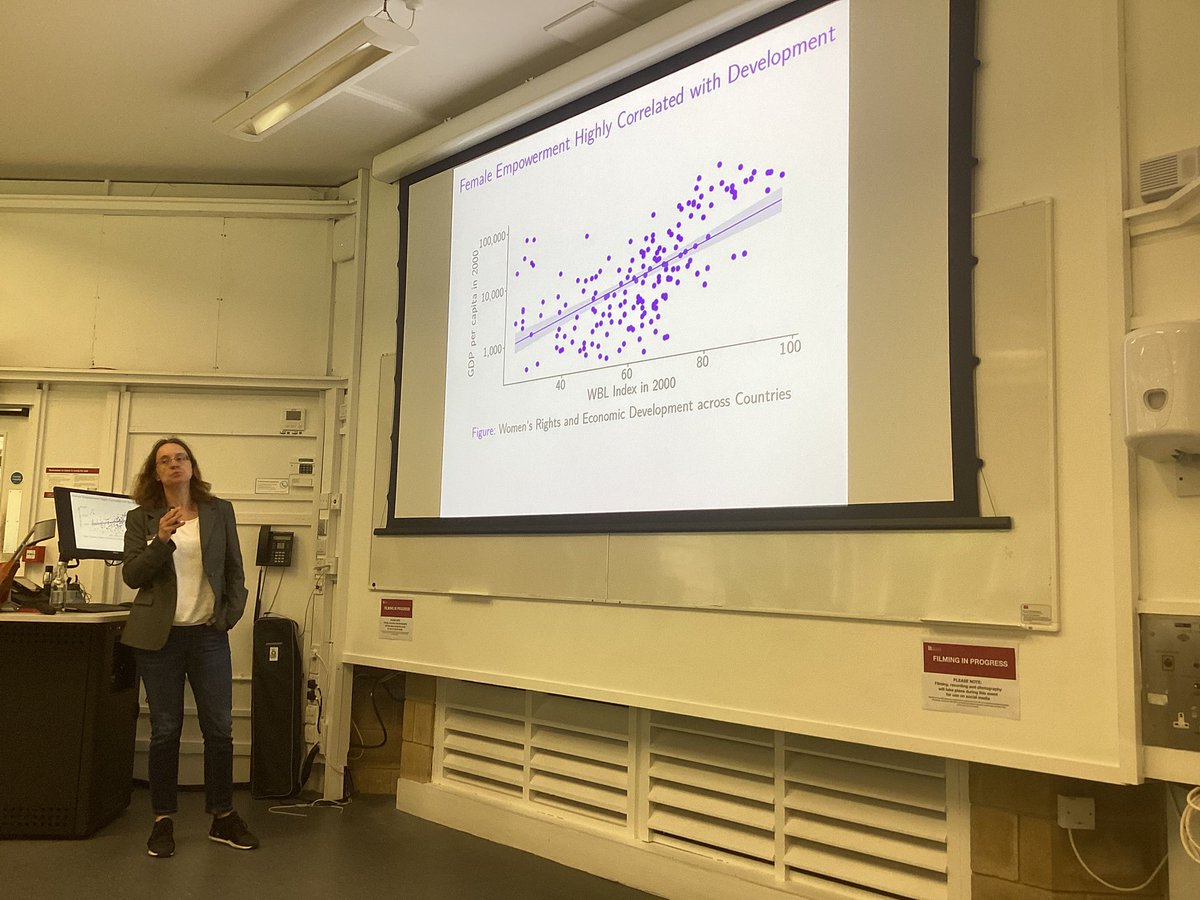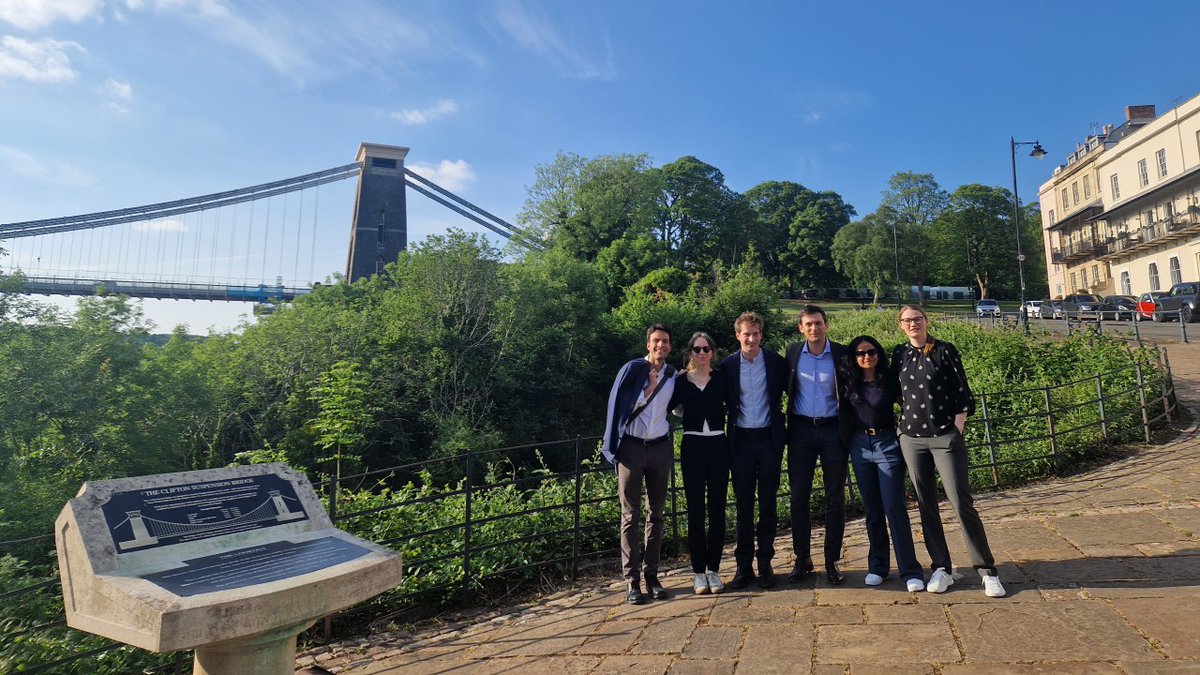
Eleonora Guarnieri
@el_guarnieri
Assistant Professor in Economics @BristolUniEcon | From Val di Rabbi, Trentino, Italy
ID: 1012082553149382656
https://sites.google.com/view/eleonora-guarnieri/research 27-06-2018 21:17:39
238 Tweet
965 Followers
992 Following


First up is Anna Hochleitner (NHH Department of Economics). Using academic reference letters and two experiments, Anna shows that recommendation letters for women emphasize effort over ability, shaping hiring decisions. Recruiters often don’t realize the bias, undermining diversity efforts.


NHH Department of Economics Why do sons more often take over the family firm than daughters? Using rich Finnish data, Ciprian Domnisoru shows the gender gap starts early, with son-biased fertility, unequal grooming. Norms vary strongly by industry. Paper: docs.iza.org/dp17800.pdf


NHH Department of Economics We continue with Gabriel Leite Mariante. Do unconditional cash transfers discourage work? Not for women in Brazil. A boost in benefits led more mothers to join the labor force, especially when it helps easing childcare burdens. Paper: drive.google.com/file/d/1ksDE04…


NHH Department of Economics Gabriel Leite Mariante Sara Spaziani shows that gender quotas in Italian governments boosted female representation, and over time, strongly increased access to anti-violence services. Political representation can help to reduce gender-based violence.


NHH Department of Economics Gabriel Leite Mariante Sara Spaziani Franziska Valder asks what drives gender differences in health. Her evidence from Denmark points to an important role of providers: women are less likely to be prescribed lifesaving drugs, but can improve their outcomes when they change doctors.


NHH Department of Economics Gabriel Leite Mariante Sara Spaziani Franziska Valder Our keynote speaker Michele Tertilt provides a fascinating overview of the economics of women’s rights. Her findings illustrate the importance of economic forces for rights expansions, but also how the impact of these forces varies with culture.


The 2nd theme of our Applied Economics Meetings 2025 began today: 'Gender, Diversity & Human Capital' 💡 We're delighted to welcome keynote speaker, Michèle Tertilt (Department of Economics, University of Mannheim), now delivering her talk on 'The Economics of Women's Rights' 👏 👉 brnw.ch/21wRZ4g


NHH Department of Economics Gabriel Leite Mariante Sara Spaziani Franziska Valder Michele Tertilt Alessandro Toppeta (@sofi.su.se) shows that more school isn't always better: in Sweden, teens randomly tested after holidays show stronger non-cognitive skills, especially those from wealthier families. More breaks may boost development, but they risk widening inequality.


NHH Department of Economics Gabriel Leite Mariante Sara Spaziani Franziska Valder Michele Tertilt SoFi Erika Povea studies the impact of violent crime on education. As organized crime surges in Ecuador, school dropout rates rise. Children aged 11–14 are most affected, not due to fewer resources, but to fear and instability.


NHH Department of Economics Gabriel Leite Mariante Sara Spaziani Franziska Valder Michele Tertilt SoFi Erika Povea We continue with Ellen Greaves (University of Exeter Business School). She shows that better schools don't always boost nearby home prices. Her work shows the "school premium" only appears when the alternative is a clearly worse school.


NHH Department of Economics Gabriel Leite Mariante Sara Spaziani Franziska Valder Michele Tertilt SoFi Erika Povea University of Exeter Business School Shadi Farahzadi shows that after 9/11, intermarriage rates for American Muslims dropped sharply—driven more by changing preferences among non-Muslim Americans than Muslims themselves.


NHH Department of Economics Gabriel Leite Mariante Sara Spaziani Franziska Valder Michele Tertilt SoFi Erika Povea University of Exeter Business School Shadi Farahzadi The day concludes with Bin Huang. He shows that in Mao-era China, forced integration reduced trust and growth. But decades later, the same villages built stronger, more productive ties. Institutions turned diversity from a burden to an asset.


NHH Department of Economics Gabriel Leite Mariante Sara Spaziani Franziska Valder Michele Tertilt SoFi Erika Povea University of Exeter Business School Shadi Farahzadi Bin Huang We kick off the last day of BÆM 2025 with Caterina Pavese. She uses data from the Netherlands to show that early integration boosts cultural assimilation but can hurt education—especially for disadvantaged children.


NHH Department of Economics Gabriel Leite Mariante Sara Spaziani Franziska Valder Michele Tertilt SoFi Erika Povea University of Exeter Business School Shadi Farahzadi Bin Huang Caterina Pavese Do classmates with disabilities affect learning outcomes? Sofía Sierra Vásquez studies this question in Chile. Students in inclusive classrooms show slightly lower test scores but the impact varies by disability type and is eased when teachers stay with the same class over time.


NHH Department of Economics Gabriel Leite Mariante Sara Spaziani Franziska Valder Michele Tertilt SoFi Erika Povea University of Exeter Business School Shadi Farahzadi Bin Huang Caterina Pavese Sofía Sierra Vásquez Oleksandra Cheipesh shows that media role models matter, even in childhood. In early-2000s Ukraine, girls with more exposure to female-led animated series later pursued more education and STEM—and both boys and girls held fewer gender stereotypes.


NHH Department of Economics Gabriel Leite Mariante Sara Spaziani Franziska Valder Michele Tertilt SoFi Erika Povea University of Exeter Business School Shadi Farahzadi Bin Huang Caterina Pavese Sofía Sierra Vásquez Oleksandra Cheipesh Giulia Ferrero shows the sex preferences of parents in a war setting. Her results suggest that families exposed to ethnic conflict had more children if they only had daughters. The war amplified sex-selective fertility and abortions, revealing how violence shapes family choices.


NHH Department of Economics Gabriel Leite Mariante Sara Spaziani Franziska Valder Michele Tertilt SoFi Erika Povea University of Exeter Business School Shadi Farahzadi Bin Huang Caterina Pavese Sofía Sierra Vásquez Oleksandra Cheipesh Giulia Ferrero Last but not least Dario Sansone (University of Exeter Business School) studying the sources of taste discrimination using list experiments. In Chile, many say they're comfortable with gay colleagues—but list experiments reveal far more discomfort suggesting social pressure masks discrimination.


When ethnic groups within countries become more culturally distant from those holding power in the central government, their likelihood of rebelling increases significantly. We spoke with Eleonora Guarnieri of University of Bristol about why such conflicts arise. aeaweb.org/research/cultu…

We were privileged to welcome the Review of Economic Studies' (The Review of Economic Studies) annual 'REStud Tour' to Bristol last week 🌍 We enjoyed fascinating research insights from 7 bright young economists from North America 🎓 👉 brnw.ch/21wSQug Thanks to all our guests 🤝

